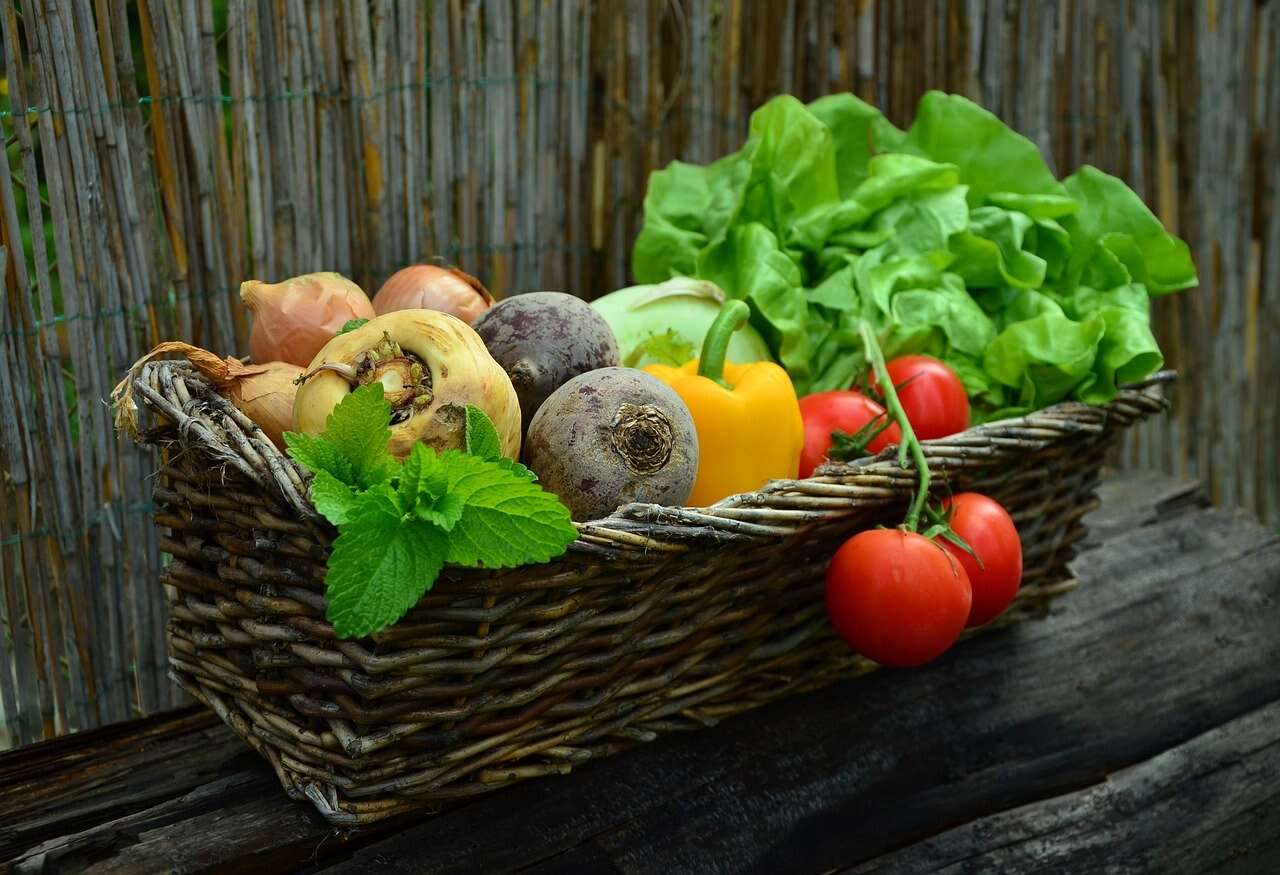Buying food

Eating more sustainably means buying more fruit and vegetables, seasonal, organic and local.
There are many seasonal fruit and vegetable calendars on the Internet. They may vary, depending on the region.
Swiss strawberries will arise a little later than the French ones, from Provence, for example. But nowhere in our hemisphere do they grow naturally in February.....
In order to buy local and organic products, we can focus on
- stores specialising in organic products,
- farms that offer direct sales or baskets,
- producers present on the markets
Farm addresses in the Lucerne area are available on the following websites:
Here some links to vegetable basket subscriptions:
In supermarkets, the ideal is to avoid as much as possible products from the food industry, including drinks (especially soft drinks, among the largest plastic producers, the sugar they contain also contributes to deforestation and monoculture...).
Products containing palm oil and additives that may be hazardous to health should be avoided as much as possible (applications such as Yuka can help).
Organic and local producers are present at the markets in Lucerne on Tuesdays and Saturday mornings and in Kriens (Bellpark) on Saturday mornings.
Local products can also be found in local supermarkets or in organic specialist shops. For example in Lucerne:
Regarding foods that are not produced locally, such as coffee, tea or cocoa, it is better to choose the organic and fair traded ones.
In supermarkets, the ideal is to avoid as much as possible products from the food industry, including drinks (especially soft drinks, among the largest plastic producers, the sugar they contain also contributes to deforestation and monoculture...).
Products containing palm oil and additives that may be hazardous to health should be avoided as much as possible (applications such as Yuka can help).
Good to know:
Palm oil comes from an intensive crop that contributes to deforestation, destroys food agriculture (crops for local populations) and pollutes during its transport.
It is found in cereals, ready made soups, crackers, biscuits, baby products, ice cream, margarines, chocolate products (spreads), breads and brioches.
It is sometimes hidden in the list of ingredients under the names of vegetable oil, vegetable fat, ascorbyl palmitate E304, palm olein,...
Be careful, many palm oil-free products contain other exotic oils such as coconut oil. Their ecological balance sheet is just as bad.
Palm oil comes from an intensive crop that contributes to deforestation, destroys food agriculture (crops for local populations) and pollutes during its transport.
It is found in cereals, ready made soups, crackers, biscuits, baby products, ice cream, margarines, chocolate products (spreads), breads and brioches.
It is sometimes hidden in the list of ingredients under the names of vegetable oil, vegetable fat, ascorbyl palmitate E304, palm olein,...
Be careful, many palm oil-free products contain other exotic oils such as coconut oil. Their ecological balance sheet is just as bad.
To go further:
- support local agriculture.
- share my good local addresses with my friends and family.
- resist the temptations of supermarkets that offer off-season products at attractive prices.
- write to them to let them know that it is not normal to find melons or tomatoes in the winter... (to be adapted to what shocks you the most...).